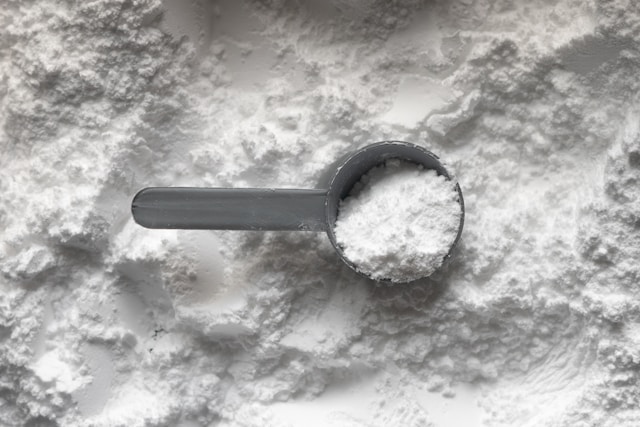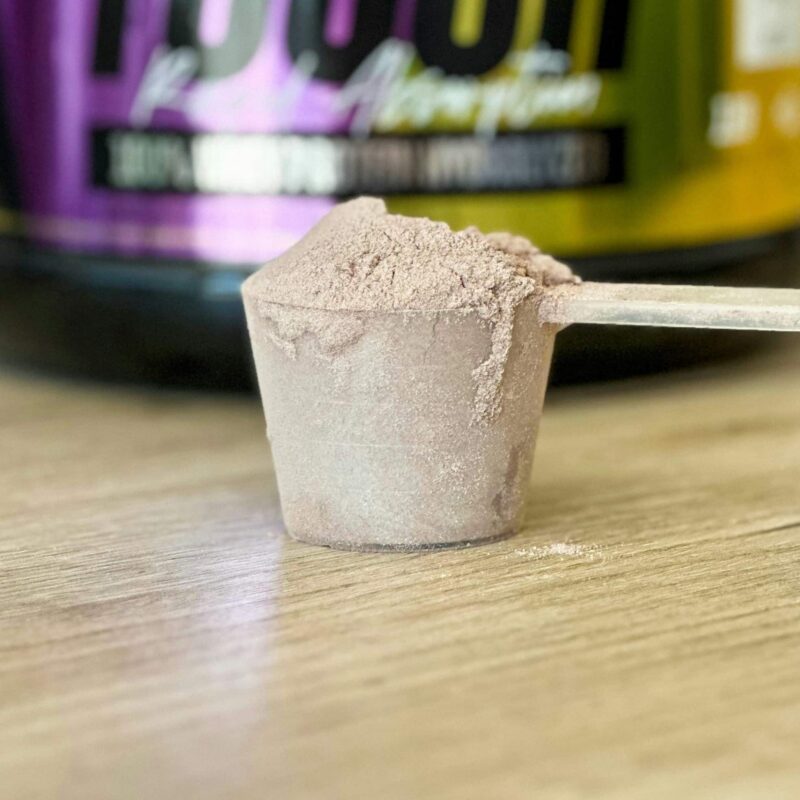Whey Protein Powder Benefits- Get Smart The Right Way!

Mere Pakistaniyon, Eid Mubarak!
After the blessed month of Ramadan, you must be excited to celebrate Eid in full spirits. So, are you ready to try our Hyper Whey protein powder and get back to fitness routine? Well, don’t forget to save your Eidis then, because we’ll restock soon!
Whey protein powder is a well-known supplement and has gained much praise among gym-goers. But what exactly are the benefits of whey protein? Are they limited to muscle gain, or do the benefits go beyond this?
If you’re planning to include a high-quality whey protein powder in your fitness routine, it’s better to do your research. To your surprise, whey protein has a lot to offer more than just building your muscles.
So, are you curious to know what strengths that box of protein powder on your shelf holds?
Let’s look at the benefits of whey protein powder.
Whey Protein Powder Benefits
The common use of whey protein is as a protein supplement. That is why many fitness enthusiasts drink protein shakes regularly to stay in line with their workout goals.
The common types of whey protein powders are:
Each of these types of protein powders has a different manufacturing process, but they provide similar benefits.
Now, let’s look into the benefits of whey protein powder.
1. Whey protein helps with muscle growth

Well, you might have heard about this before as well. But, if you’ve tried a whey protein powder, you must have experienced this result yourself.
The primary reason for consuming whey protein for gym-goers is to gain those extra muscles and flaunt their biceps, which isn’t usually possible with exercise alone.
Apart from this, whey protein is also beneficial for preventing muscle loss, as our muscles usually decline with age. That is why most people believe that combining resistance exercise with high-protein sources is essential for muscle growth.
In fact, some studies suggest that whey protein is better than casein protein in the recovery of muscles.
2. Whey protein helps in weight loss

If you’re concerned about the common perception that whey protein can help in weight loss, you should believe it.
A clinical study revealed that whey protein supplements are beneficial for increasing fat loss in the body.
Apart from this, whey protein has the ability to make you feel full for longer, thus suppressing your hunger. That is why people often drink whey protein shakes to reduce their calorie intake and get enough energy from the protein powder.
3. Whey protein has high-quality protein

If you’re looking for a high-quality protein source apart from whole foods, whey protein has got you covered.
Although we recommend relying on whole foods and natural sources to fulfill your protein requirement, you can also go for supplements if your requirement isn’t being fulfilled through natural sources.
But what makes whey protein a source of high-quality protein?
Well, research shows that whey protein is made up of branched-chain amino acids, and it is easily absorbed in the body. The high nutritional value of whey protein has made it a common nutritional supplement in the past years.
4. Whey protein has anti-cancer and antioxidant properties

According to research, whey protein contains lactoferrin, which is a bioactive compound. Such compounds have anti-cancer properties. The same research also indicated that whey protein has antioxidant properties as well.
Glutathione is an important antioxidant, which is also produced in the body. However, the production of glutathione is linked with the supply of several amino acids. As the supply of amino acids like cysteine is often limited, using whey protein may help boost this supply and increase the antioxidant defense of the body.
5. Whey protein can help lower blood pressure

Some studies were conducted to support the fact that whey protein can help lower blood pressure. While some research supports this stance, other studies still need to be conducted to be more clear about this.
A study was conducted on obese people, which concluded that whey protein supplementation decreased blood pressure in the individuals.
However, the accuracy of whey protein in lowering blood pressure needs to be studied further.
6. Whey protein maintains heart health
Studies were also conducted to study the positive effects of whey protein powder on heart health.
According to one study, whey protein supplementation in 70 overweight men and women reduced the total cholesterol and LDL levels over the course of 12 weeks.
In this way, whey protein may have a positive effect on heart health, and it may prevent several heart problems by maintaining the levels of cholesterol.
7. Whey protein reduces hunger

As mentioned before, whey protein has satiating capacity, meaning that it makes us feel full for longer.
In this way, whey protein is an excellent source of protein if you want to lose weight.
8. Whey protein is suitable for type-2 diabetes
People with type-2 diabetes need to monitor their food intake.
However, research suggests that you can consume whey protein if you are suffering from type-2 diabetes. It’s best to have it before or alongside a high-carbohydrate meal. In this way, it will regulate blood sugar levels.
Still, it’s better to consult your doctor about the right protein intake if you’re already suffering from type-2 diabetes.
9. Whey protein may help with inflammatory bowel disease (IBD)

Inflammatory bowel disease (IBD) refers to the chronic inflammation of the gastrointestinal tract. This disease is a combination of two conditions: Crohn’s disease and ulcerative colitis.
Studies were conducted on both mice and humans to study the effect of whey protein on individuals suffering from inflammatory bowel disease.
In the study conducted on mice, whey protein had positive effects on mice suffering from IBD.
In another study conducted on humans, the results showed that whey protein supplementation is beneficial for reducing inflammation in people suffering from ulcerative colitis.
However, these were the results of limited studies, and the effect on humans needs to be studied further before drawing accurate results. So, it’s better to consult your doctor in this case.
Take-away message
When compared to other types of proteins, the benefits of whey protein powder are very similar.
However, the unique qualities of whey protein make it better in some cases.
Before starting whey protein supplementation, it’s better to check if you aren’t allergic to dairy-based protein. In case of any allergies or sensitivities, you might face problems. You also need to check the ingredients in the protein powder.
Otherwise, whey protein is an excellent source of high-quality protein, and including it in your diet will step up your fitness routine, along with providing several other health benefits.
Still, you need to monitor your protein powder intake and drink the protein shake at the right time and in the right amount. In this way, you will get the most benefits of your protein powder.












